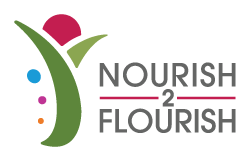The Value of Metabolic Testing
You may be wondering why you should consider metabolic testing. Maybe you don’t even know what it is… many people don’t. A metabolic test can be done at rest or during exercise and it will tell you how many calories you are burning from fat and carbohydrate. You may think that this type of testing is for only athletes but it can also provide information about your body’s metabolic health. If you are struggling with fatigue or the inability to lose weight, this test can help to shed some light on reasons why. From there we can make nutrition and exercise changes, specific to your test results, that can spark change in your body.
We can use the test to calculate your resting metabolic rate but most clients I see are doing some type of exercise so I like to do the test during a typical workout session. You may find that your body is burning through carbohydrates and does not even tap into your stored fat when you are working out. If this is the case, you are not able to burn fat so it’s difficult to lose weight. Even worse yet, if you are an athlete, you will bonk or hit the wall much sooner than expected because you burn through your stored carbohydrates too quickly. In addition, wouldn’t you want to know how many calories you are burning? If you struggle to understand how many calories you should eat before, during and after exercise, the metabolic test will help you to determine your exact calorie needs. Test... don't guess!
This type of test is different than a VO2max test. A VO2max test tells you the maximum amount of oxygen your body can consume during exercise. That may give you bragging rights with you buddies but it doesn't really mean much in terms of performance. The type of metabolic test we perform looks at the oxygen you inhale and the carbon dioxide you exhale. From there we can calculate the respiratory quotient, which tells us how much fat and carbohydrate you are burning. This also makes the calorie data more accurate
Once we have your test data, I can tell you how efficient you are at burning fat, how many calories you burn and how many carbohydrate calories you need to replace in a longer training session or race. We will also use the data for nutrition changes to become more efficient at burning fat. Contrary to what most believe, training has approximately 25% impact on the ability to burn fat and nutrition impacts this by 75%. I have seen multiple Ironman triathletes that burn more carbohydrates than fat at rest. This is because they are fueling themselves on carbohydrates on a daily basis.
Here are some of the ways we can use this data.
Weight loss: This client was unable to lose weight by following standard nutrition recommendations and going to the gym 6 days a week.
As you can see from the chart, she was not burning much fat at rest. We used this information to change her daily diet and exercise program.
She came back for a follow up test 16 weeks later and this was her result.
She is now burning significantly more fat until she reaches a higher intensity on the bike. This metabolic change helped her to lose fat and improve her body composition.
Race day nutrition/Minimize GI distress: This was an Ironman triathlete that suffered from GI distress in prior races. She followed standard sports nutrition guidelines to take in 50 grams of carbohydrates (200 calories) per hour.
She typically raced at a heart rate of 135 so we did a metabolic test that started at a low intensity and gradually increased the intensity to higher than her typical race intensity. From the data we were able to determine how many carbohydrate calories she needed to replace.
The test showed that the maximum amount of carbohydrate calories she can consume and safely absorb at her racing heart rate is about 100 calories.
She was taking in twice the amount of calories she needed, which was why her body was rejecting the food and she ended up with GI distress. She used this test data for her next Ironman race, took in about 75 calories per hour and beat her best time by more than one hour.
If you are suffering from fatigue, moodiness/hanger between meals, GI distress, confusion over how much to eat during and outside of training, this test can help you. Contact us to learn more.




